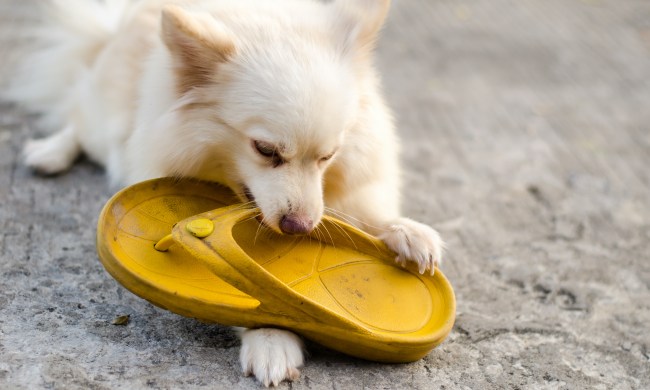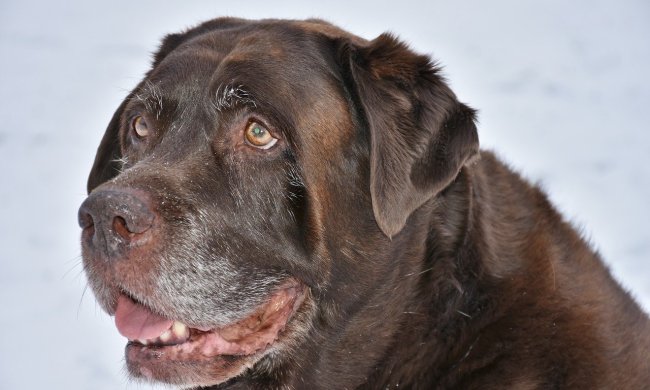From massive Great Pyrenees to tiny Chihuahuas, all dogs share a common ancestor: the gray wolf. It’s true! And even though most canines today look nothing like their ancestors, some instinctive traits — such as howling — remain. Even in Hollywood films, howling canines symbolize the untold horrors our on-screen heroes are about to face. In fact, the association between howling dogs and unfortunate circumstances dates back to Ancient Egypt.
Anubis — the Egyptian god of death, mummification, and the afterlife — is depicted as having the head of a dog. Ancient Egyptians believed that dogs howled to summon Anubis to collect a soul. Even in modern times, though, the sound of a howl in the dead of night can send shivers down your spine. But why do dogs howl?
Dogs howl as a form of everyday communication
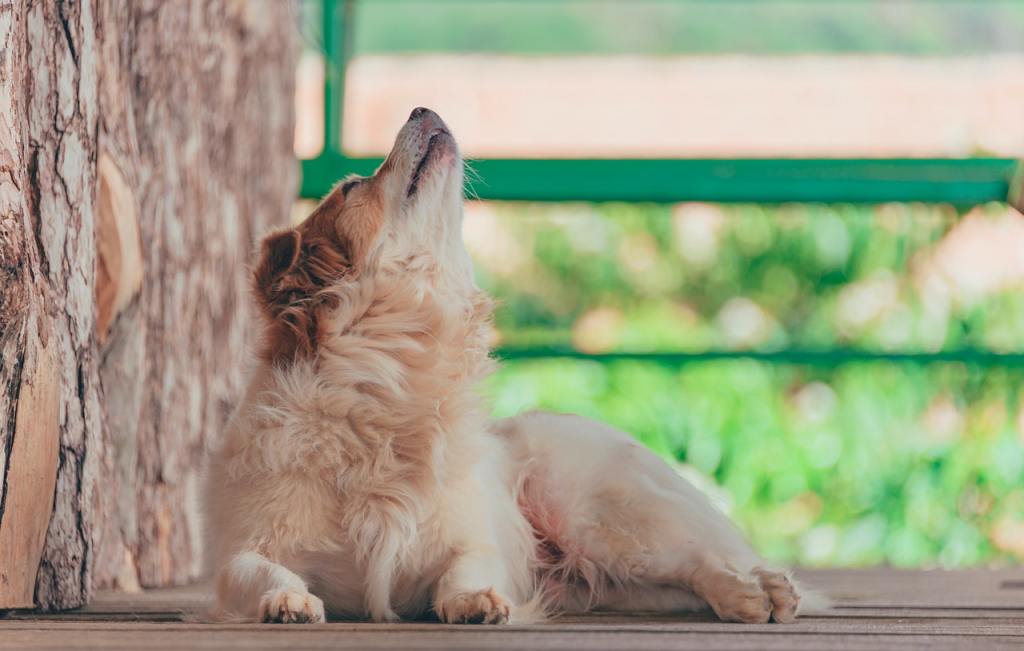
As entertaining as it is to watch a miniature poodle throw his head back and howl at the top of his tiny lungs, your pup may not be howling just to get your attention. Apart from more typical barking and yapping, howling offers your dog another method of communication.
For the most part, howling is normal for dogs, regardless of the breed. According to the American Kennel Club (AKC), “Howling seems to serve a social purpose, a dog’s way of saying, ‘Here I am.'” So it’s most likely nothing to worry about!
What is the purpose of howling?

Howling dates back to your pup pup’s ancient ancestors, who cried out for all sorts of reasons, including to rally the pack, defend their territory, and execute hunting strategy. Today’s pampered beasties might not engage in these activities, but they still retain the instinct to let a big howl loose. Instead, they use the behavior to interact with their own surroundings, which could mean valiantly defending the homestead from evil neighbors.
Scientists don’t truly understand the howl, but we do know it can have all sorts of triggers. Getting to know your four-legged friend’s reasons will help you figure out how to deal with it.
Why do dogs how? These are the most common reasons your dog howls
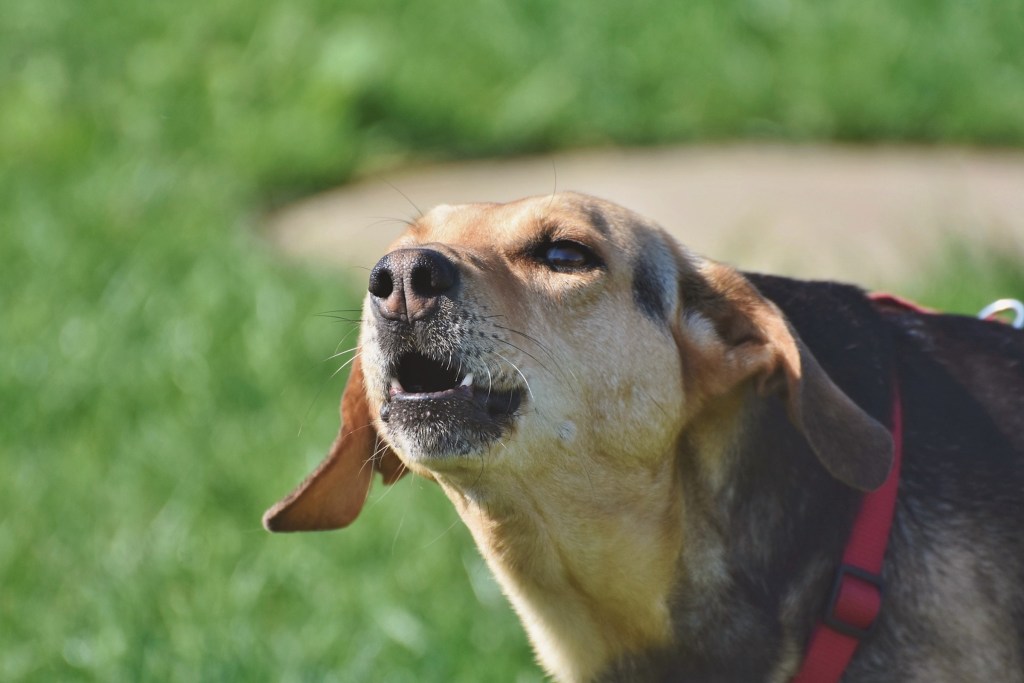
Aside from a bid for your attention, dogs may sing the song of their species for a variety of reasons. Here are some of the most common reasons your dog howls.
Your dog may let out a howl as a sign of excitement
If your dog suddenly begins to howl while he’s digging in the backyard, it could be his way of announcing he’s found something exciting. Whether he’s discovered a mole’s den or he’s unearthed a bone he buried months ago, your pooch could be howling because he’s proud of himself for unearthing buried treasure. Of course, this is just one example of an excited howl!
Your dog is letting you know where he is with a howl
Dogs, like wolves, are pack animals. Sometimes howling is your pup’s way of letting you know where he is, especially if you’re not within sight. In the wild, howling is often used as a homing beacon that guides the pack from one location to another. Your dog may also howl when he hears your car pull in the driveway to lead you safely back inside the house. He’s just trying to help!
Your dog might howl when he hears something intriguing
It’s not uncommon for dogs to howl in response to sirens and other high-pitched noises. Sometimes even music or the television can be enough to set your dog off on a howling frenzy. Fortunately, this particular howling response shouldn’t be problematic unless it recurs. In most cases, your precocious pup will quiet down once the noise stops.
Howling can be a sign that your dog has separation anxiety
If your pup suffers from separation anxiety, he probably displays more symptoms than howling. Additional signs your dog may have separation anxiety include destructive behavior, urination and defecation in the home, pacing, and excessive panting.
Your dog might be in pain if other symptoms accompany howling
Because dogs can’t use words to tell us when something hurts, they have to rely on other forms of communication. Howling and whining could indicate that your dog is suffering from a medical condition that requires prompt treatment. If your dog exhibits additional signs he’s in pain, such as panting, acting aggressively, limping, loss of appetite, or other changes in behavior, you should take him to the vet as soon as possible.
How to stop your dog from howling
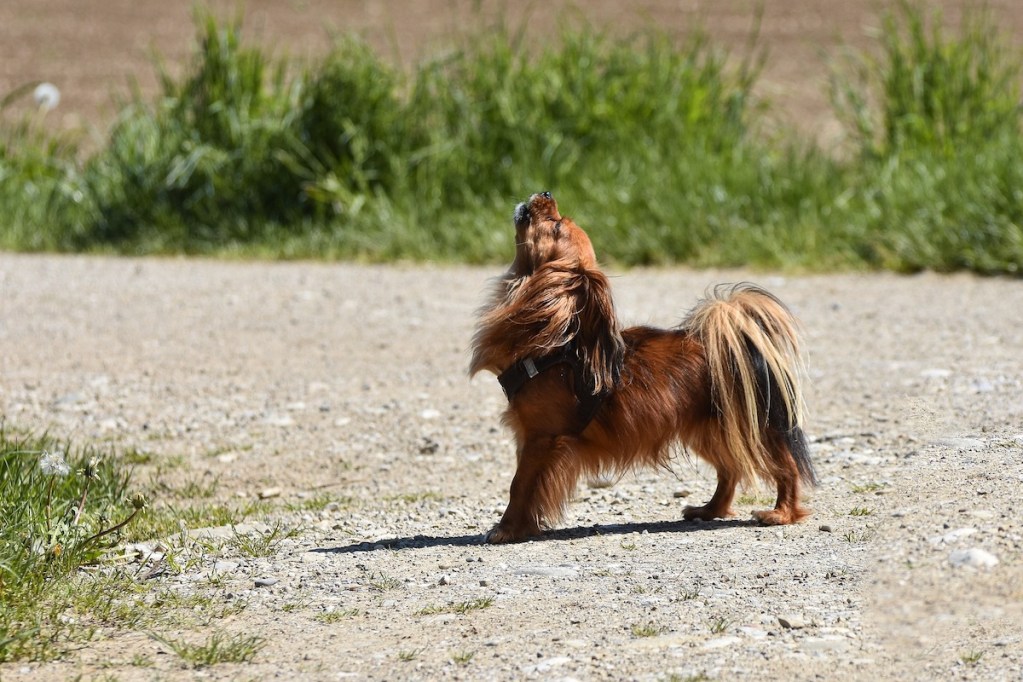
If your dog indulges his inner wolf only on rare occasions, you probably won’t be too bothered by the occasional howl. But if your pup has a penchant for howling on a daily basis, it’s time to curb his vocalizations before the neighbors start to complain. Here are a few ways you can help get your dog to stop howling.
Ignore him if he’s howling for attention
While ignoring your pup sounds counterintuitive, it can help stop unwanted behavior in its tracks. Even scolding your dog is a reward in the form of attention. Ignoring your dog will teach him that howling won’t get him the extra notice he craves — if that is why he’s howling, of course.
Remove the stimulus to avoid howls altogether
If you’re mindful of what causes your dog to howl, you can do your best to eliminate the stimulus. Does your dog howl when the school bus makes a stop near your house, for example? While you can’t force a school bus to take a different route, you can take your dog to the quietest room in the house, close the curtains, and possibly run a white noise machine to distract him from outside sounds.
Reward him when he stops howling
Give your dog a treat when he quiets down and then tell him what a good boy he is. If he starts howling again, immediately remove any treats and return to ignoring him. Dogs are motivated by food, so he’ll eventually make the connection between silence and receiving a tasty treat.
Dogs will be dogs

It can be frustrating if your dog loves to get in touch with his wolf ancestry by howling. Once the vet has ruled out medical issues as the cause of his vocalizations, you can get to work teaching your pup how to be quiet. Much like training your dog to do tricks, training your dog not to howl takes trial and error, a lot of patience, and consistency. You’ll get there.


